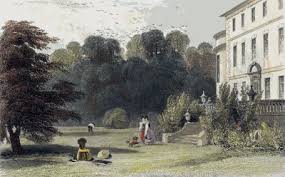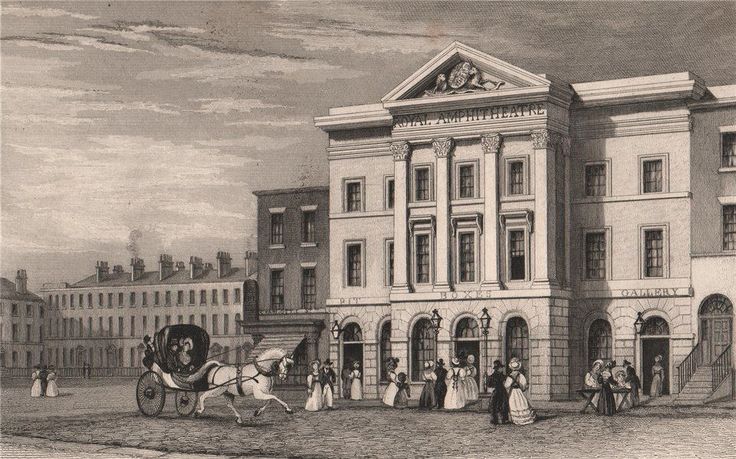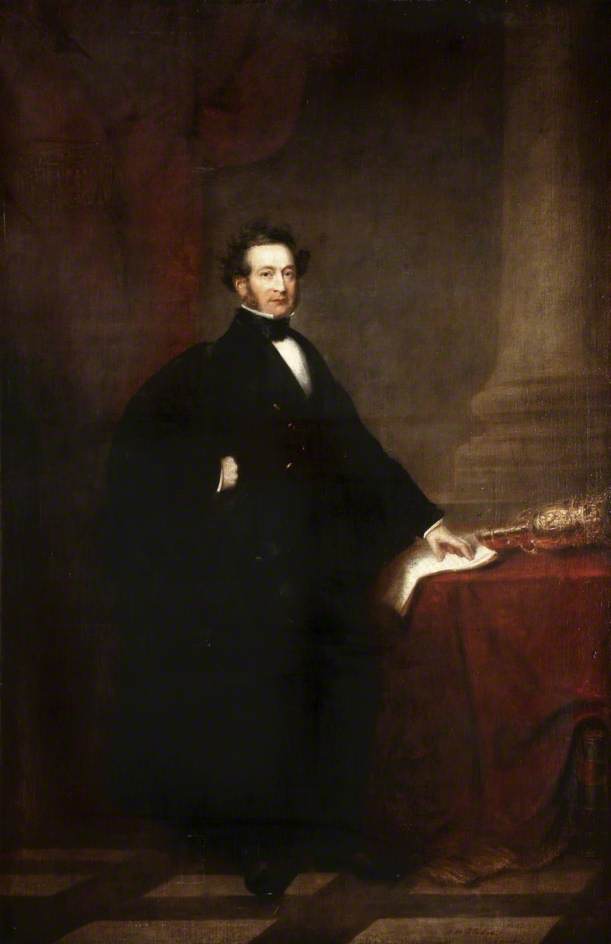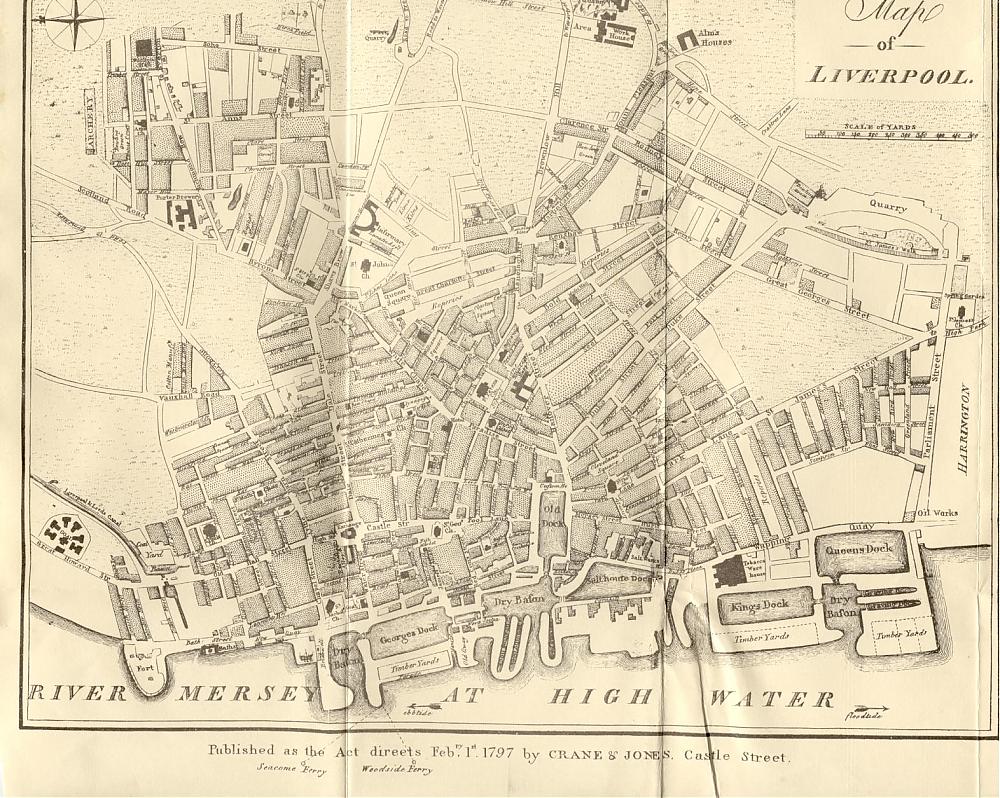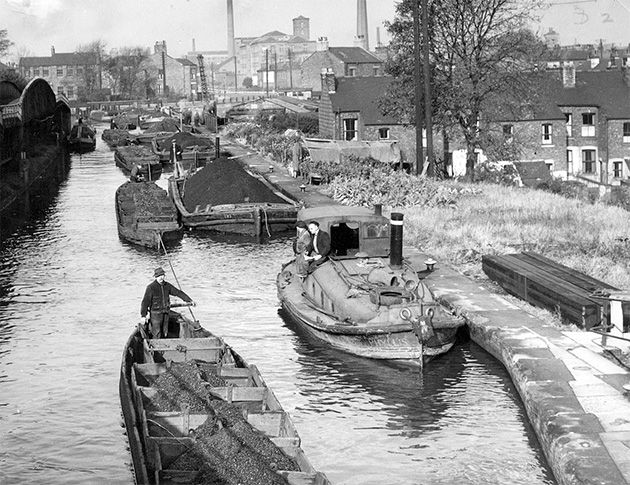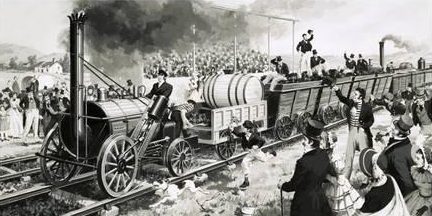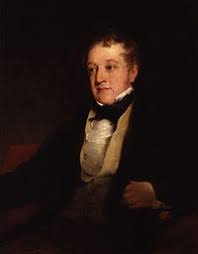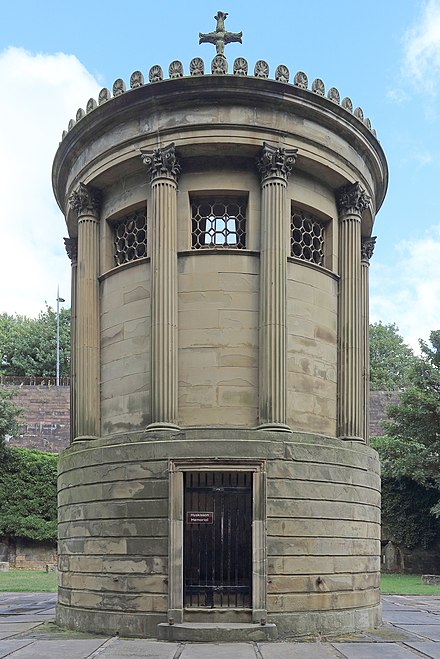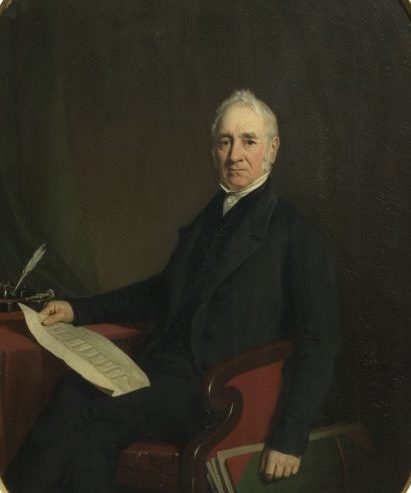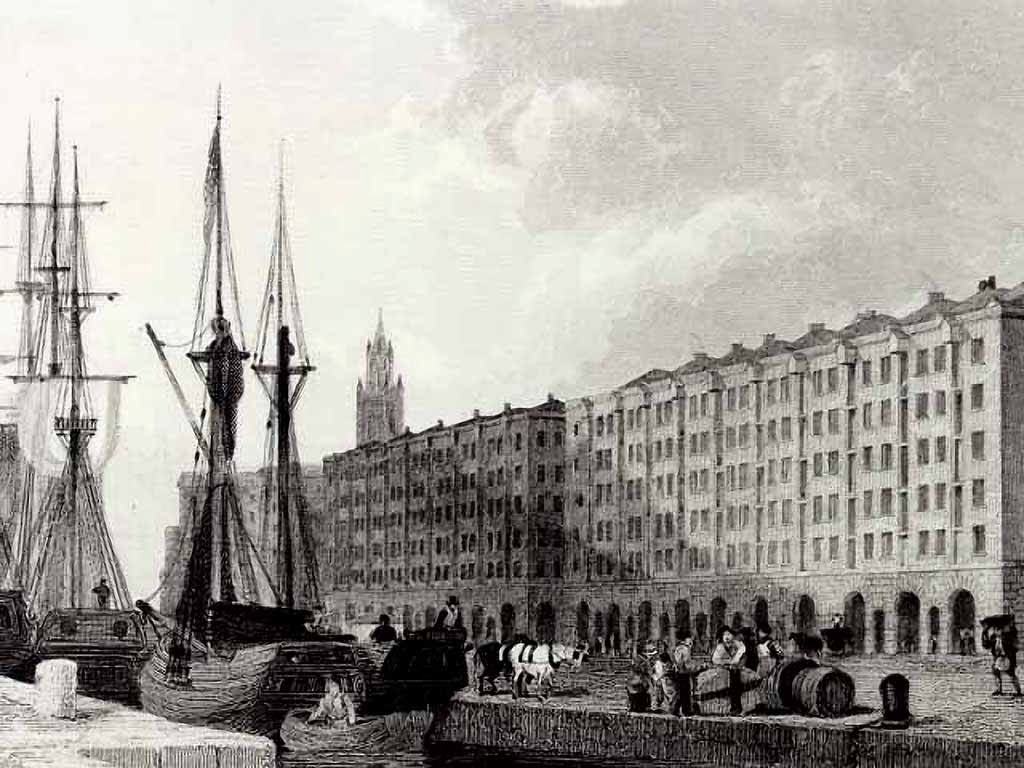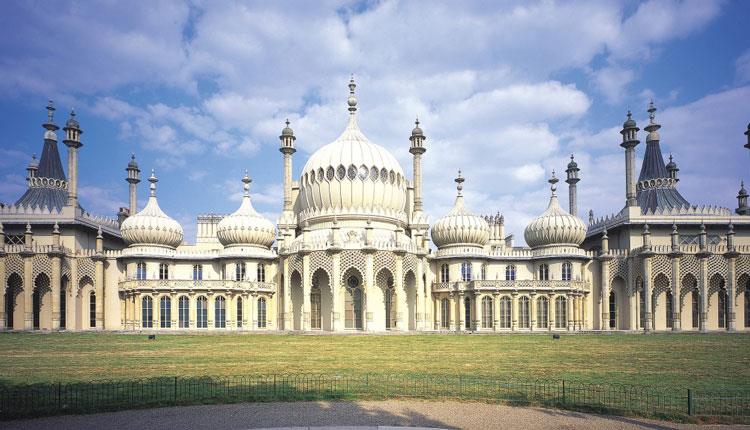CHAPTER XIX. This chapter covers more of 1848, with a couple of letters taking us up to 1850. The Corn Laws had been repealed in 1846, splitting the Tories. Sir Robert Peel largely did it to prevent a clamour for more radical reform, in particular from the Chartists. There were revolutions all over Europe looking for electoral reform and greater participation in political life by the middle and working classes. So it was a heady time.
It is also quite clear that Josh, Cobden, and Joseph Hume are looking for bourgeois rather than radical reform – taking power from the aristocracy and landowners, and increasing the power of the industrialists and manufacturers. So Josh is Radical but not too radical. He’s still a year away from becoming an M.P, and a part-owner of the Daily News, because as said in chapter 18 ” It was owing in some degree to his friend Cobden’s expressed desire to see a new paper started to uphold the doctrine of non-intervention, that Sir Joshua became a part proprietor of the new Liberal organ, The Daily News. ”
” Poor Bentinck ” referred to in Cobden’s letter is Lord George Bentinck (1802-1848), third son of the 4th Duke of Portland who was the leader of the Conservative Party in the House of Commons between 1846 and 1848 who had died of a heart attack four days before Cobden’s letter.
Previous to starting the National Reform Association, Sir Joshua made a tour through the North of England. He had lost his seat for Leicester, but the fifty members of parliament who had formed themselves into a committee to advocate Reform principles passed a resolution, inviting him to continue honorary secretary to their body, and he had consented to do so. The result of this tour he gave in a letter to Mr. Cobden, which has unfortunately been lost, but the import of which may be gathered from the following answer :
” Hayling Island, Hants, 25th September, 1848.
“My dear Walmsley,
”I have been a good deal interested with the perusal of your letter, giving me a sort of political stock-taking of public opinion in the North.
Much depends for the future upon the course of events on the Continent. If the Germans fall into anarchy, or the Red Republicans get the upper hand in France, our middle classes will cower under the wings of the aristocracy for safety and protection, and you and I may close our accounts as agitators for awhile. In the meantime the economy and retrenchment cry is working and bringing people gradually to the ranks of the parliamentary reformers.
The Daily News is doing the part, and indeed, all parts, admirably, and it would be a pity indeed if, with such an efficient corps of writers, the paper cannot be not merely sustained but strengthened. By-the-way, I got a letter from Birmingham the other day, giving some details of the working of an association for buying county freehold votes. It is succeeding and extending its operations into the neighbourhood, and I feel quite convinced that this forty-shilling freehold scheme is the only certain though slow way of beating the aristocracy; and so I have said in a letter to the society, which will be read at the anniversary meeting on the 6th of October. Poor Bentinck ! what phantoms we are and what bubbles we pursue ! My wife joins me in kind regards to Lady W. and yourself.
“ Believe me, faithfully yours,
” Richard Cobden.”
An association had been started in Liverpool, under the name of the Financial Reform Association. The principal object of a visit paid by Sir Joshua to his native city was to see this body, and to attend a meeting to be held in the Portico, Newington, on the 29th September. The purpose of this association, as its name implies, was to enforce the principle of economy in public expenditure. It advocated also a system of direct taxation, levied upon property and income, instead of indirect taxation upon commodities.
The reform of the House of Commons, however, was not included in its programme, and in the estimation of Mr. Hume and his adherents, the reform of the House once effected, all other reforms would follow. On the appointed evening the meeting came off. It was crowded. This short extract from Sir Joshua Walmsley’s speech is a curious statement of the proportionate taxation of England relatively to other countries at that time :
” State taxation in the United States, in Russia, Prussia, and Austria, does not exceed nine shillings to twelve shillings per head, in France it is twenty-six shillings, whilst in our own it is fifty-two shillings and sixpence. In other countries the chief taxes are borne by the land, in this by the labouring classes. ”
In the following letter of Mr. Cobden’s relating to this meeting, one phrase in it, alluding to his own probable length of days, now reads like a mournful prophecy :
” Hayling Island, 4th October, 1848.
“My dear Walmsley,
” Many thanks for your letter and the newspaper, giving an account of the Liverpool meeting. You hit the nail right on the head. Don’t be afraid to repeat the blow again and again in the same place ; it is by such means only, that the arguments or the nail can be driven home. I was struck with the same impression as yourself, when reading Gladstone’s remarks, viz. that he gave proofs of being in earnest by his attacks on all sides — Peel, Lord Lansdowne, M’Neile, and the Tories ! I observe what you say about our friend Hume’s anxiety to send out an address ; this is the fit of weakness which has displayed itself in occasional attacks during the session. You and I may be well excused if we have not greater foibles before we reach his age, which you may, but I shall not. However, we must try to keep him quiet. The task before us will not be accomplished by proclamation, or even public meetings or petitions ; but by hard work, done in the same methodical way in which we conduct our private affairs. Yet public meetings and addresses and speeches must form a part of our operations. My first appearance must be in Yorkshire, but I do not yet know how or when. You will legitimately appear at Liverpool, because you are one of them ; but I think they had better not invite me to their meeting in the Amphitheatre, which ought to be a local affair to command attention.
I wish you were able to be present at the Birmingham freehold anniversary, on Friday evening next. That is a movement which, if rightly started and sustained, may accomplish anything ; but there should be an association in every division of a county in which there is a town population. For instance, Liverpool should undertake to wrest South Cheshire from the squires and parsons, and Manchester should do the same for North Cheshire. What say you to a trip up to Birmingham, to make the acquaintance of Mr. Taylor, and to inspect their plan of operation ? I shall remain here for three weeks more, if the weather be favourable; but it is my intention to run up to town for two days, to meet Mr, Bastiat from France, who has come over for a few days. ”
The following extract from a letter of Mr. Hume, dated Burnley Hall, 17th November, 1848, shows what the staunch old man, now failing in health, expected from Reform, and also his radical divergence of purpose from the one of the Liverpool Financial Reform Association.

” It has disappointed me greatly that I was not in town to have met you and Mr. Cobden as contemplated, and I regret that I shall not be in town this month. I have not yet made arrangements for December, though I feel inclined to remain quiet here, as I find the frame not equal to the spirit. “
” I observe with regret, that in the country there does not seem to be that desire for parliamentary reform which is at the root of all reforms. I observe further that the Liverpool association does not attack the army navy, ordnance, and colonies, the four chief sources of expense, but confine themselves to the personal salaries and some of the smaller establishments ; although I admit the proceedings abroad have been very unfavourable to any large reduction in these branches of the national expenditure. I agree with you, that reduction and equalisation of the taxes must be the object in view. But to be true to our principles we must look to a change in the House of Commons, as the best and only effectual means of effecting these objects. “
” I am surprised that such men as form the committee in Liverpool cannot see that, with half the House members of the aristocracy, quarter of naval, military, and officials, it is absurd to expect effectual reduction or relief until that proportion is changed. “
“I am now told that the experience of the Continent shows that general suffrage here would not improve your House much, and that the aristocracy and their connections will continue to rule and direct. If that be true, the more direct we can make the taxes, the sooner the burden will reach the aristocracy. “
” I believe that the course taken by the Birmingham association for the multiplication of freeholds is one of the best that can be adopted, and that I think we should consider how best to promote and extend over the counties in England and Scotland. I despair of anything good from Ireland, where everything appears so bad — hopeless I would say. I may observe that the proceedings in Yorkshire, in coquetting with Fitzwilliam, as all the towns have done, is but a poor example of what we may expect should be done. If the strong and rich Reformers in Yorkshire will not take the manly course of starting one of themselves for the seat, what have you to expect from the poverty-stricken, priest and aristocratic ridden population in other parts of the country ? Nothing ! “
“I hope Mr. Cobden has advised the union in some manufacturer, or well-known Liberal man of the people ; and let the result be for or against us, it must be an argument we may use. “
” I quite concur, if there be one or two able men with sound discretion, that can be employed to visit all the boroughs without distinction, to inquire and try what organisation can be made in each place for the purposes of making freeholds, promoting registrations, and keeping together all the Reformers to our extent of reform. But I think that should not be done by our committee, which should stand, as we have done, on our principles, and call on each community to take the best course to support us. “
“If that could be done by such a man as Mr. Wilson and originating in Manchester, so as to keep our committee free, I think we should be better able to keep our own in the House, and make our appeals to the spontaneous proceeding of the several constituencies as they came forward to support our motion.”
” I should hope that those who have hitherto as Chartists divided the Reformers, may now, from the experience they have had, be disposed cordially to act with us, though we may not be so forward as they could wish. “
“I see the good effects of Mr. Cobden’s moving in furtherance of those proceedings as every movement of his in Yorkshire has had a good result. But I think he should in that respect be as an individual. I have thrown out my views, at first thought, of what you have mentioned ; but I shall be ready to concur in what, after consulting our friends, you may think right to promote. I am grieved to see the state of France, Austria, Germany, Italy, all unsettled, and as yet productive of so much ill. I will not say unalloyed, as The Daily News of yesterday has very properly shown the progress of liberty already made ; and which will not, I think, be allowed to recede, however foolishly the King of Prussia and the Emperor may act ! ”
The following is an extract from a letter written to Sir Joshua a few days before :
” Burnley Hall, 24th October, 1848. “
”Until matters are more settled on the Continent, the British public will not give the attention to parliamentary reform that it deserves. But in the meantime, I am pleased to learn that the creation of freeholds in the counties, and of votes in the boroughs, is going on, and I really see the absolute necessity of that being done as speedily as possible ; and if any- thing could be done to make that general, the cause of Reform will of itself progress.
“ I hear of nothing whatever from the ministers, except an assurance, made with apparent sincerity, that they are resolved on economy and retrenchment to the utmost possible extent.
” If you have an opportunity, will you speak to the Secretary of the Financial Association at Liverpool, and remind him that when I sent him copies of all the papers they wanted, and some more, they promised to send me a copy of all their publications? They have not done so (to me here), and I have not been able to offer suggestions which I might have done.
” They have, I presume, some paper as their organ, and should send me a copy whenever any of their articles appear. I think, however, it must soon be apparent to them that the H. of C. is the root of the evil, and that the attention of all financial reformers must be directed to the reformation of that House !
“Belief by such course is direct and speedy, by the other circuitous and doubtful But I must subscribe myself
” Yours sincerely,
” Joseph Hume.”
The creation of forty-shilling freeholds, recommended in these letters of Mr. Cobden and Mr. Hume as a powerful means of securing reform, had been tried by Mr. Cobden in the days of the League.
James Taylor, of Birmingham, who had begun life as a hard-working artisan, and who was now secretary of the Birmingham Freehold Land Society, had been the first to start the movement. The Reform Bill had annihilated many of the franchises existing in boroughs, but it had left standing the forty-shilling freehold qualification, conferred by statute in the seventh year of the reign of Henry VI.
The Chandos clause had left the landlords the depositaries of political power in the counties. By the votes of two hundred thousand tenants at will they could virtually dispose of representation.
To wrest this power from the landlords, by creating a class of independent voters, was the object of the forty-shilling movement. The plan pursued by these associations was to buy up large properties, and divide them into lots. By the investment of from thirty to forty pounds, the subscriber was not only placed on the register of the county where his bit of land stood, but an annual return of ten per cent was secured to him.
The Whigs — nominally the party of Reform — sought to neutralise at every step the work of the party they called Radicals. In the following letter Mr. Cobden describes their animosity thus :
” 17th October, 1848.
” I observe what you say about the Whig animus. Depend upon it, that fraction of the aristocracy will join sooner or later with their brothers the Tories against us. In fact it is a virtual coalition, for wherever they can’t bring in a man of their own they will coalesce to keep one of us out. The Whigs have contrived to get hold of nearly all the influential press in Scotland ; and there are toadies of the party who, as ‘our London Correspondent,’ are continuously throwing dirt upon us. The enclosed I cut from The Scotsman Edinburgh paper, of last Saturday. It is a formidable task to fight against the aristocracy when it presents the front of a sham Liberalism, and especially so when we have to deal with a people of such strong aristocratic prejudices, that it would almost prefer to be ruined by lords than saved by commoners. In such a case we can only ultimately make progress by the use of great prudence and patience, and the application of much hard labour — a quality in which we can beat them hollow. I am every day confirmed in the opinion that great political changes will flow out of the repeal of the Corn Laws. The farmers, as a rule, are not devoted to the aristocracy or the Church. I see nothing to separate them henceforth from their own order in the House. ”
Divergence in aim now appeared among the Reformers themselves. At a meeting in the Free-Trade Hall, Manchester, in the beginning of January, 1849, Mr. Cobden denounced ” the horrid waste of ten millions sterling a year on fighting establishments, “ announcing his intention of submitting to the House, in the following session, a scheme of international arbitration. Writing to Sir Joshua about this meeting, he says in the course of the letter : ” We had a monster meeting, indeed, yesterday. I feel, more than ever, that we ought to have stuck exclusively to the ‘ Financial Reform,’ for the present. I assure you that, even with the ‘ Fustian Jackets,’ those sentiments which referred to a great reduction of armaments were far more enthusiastically responded to than the allusion to organic change. ”
The support of the survivors of the Anti-Corn-Law League, on which Sir Joshua had counted, also fell away from him, as will be seen by the following letter from Mr. Cobden, dated 20th October, 1850 :
” There is one point on which I wish you to be correctly informed : whatever may be done by Wilson, Bright, myself, and other prominent leaders of the League, in support of your four points, we must be reckoned only for what we are worth. We cannot bring the League force with us. I have been looking over my old League correspondence since I have been here. Sackfuls of letters have passed through my hands, and they have convinced me that the same men who did the work of the League cannot be depended on for any other agitation. It is thirteen years since we began the Anti-Corn-Law movement.
Many of the principal workers are grown old, and not a few are dead ; a very few of those who are still alive are in the mood for beginning such another labour. For myself, I have never disguised from the public that I could not do again, in any other cause, what I did in the League agitation. In the House, and in those localities where I can legitimately advocate the four points, you may reckon on my doing so. I have not the least idea that either the Whigs or Tories will give the ballot, or a fair redistribution of the electoral power ; and I quite agree with you that it would be well to have the Whigs in opposition again. But how is it to be done ? ”
Thus Sir Joshua was left with only a handful of followers, working in the same spirit as himself, putting aside every other end but that of parliamentary reform, considered solely for itself. In a note dated 1862, that refers to this period, Sir Joshua says :
” The Manchester school fell away from us after awhile. What motives or circumstances produced this lukewarm feeling I am unable now to determine. Although they voted with us in the House of Commons, they did little more. Cobden even seemed more anxious for financial reform and the ballot, than for an extension of the suffrage. Had the party acted together, with the energy and zeal that the members of the National Reform Association have evinced, we should not now be still looking for an extension of the suffrage. ”
